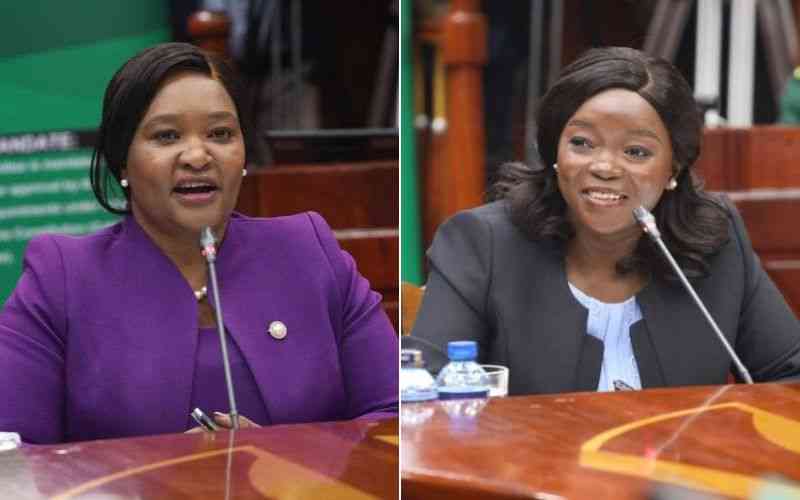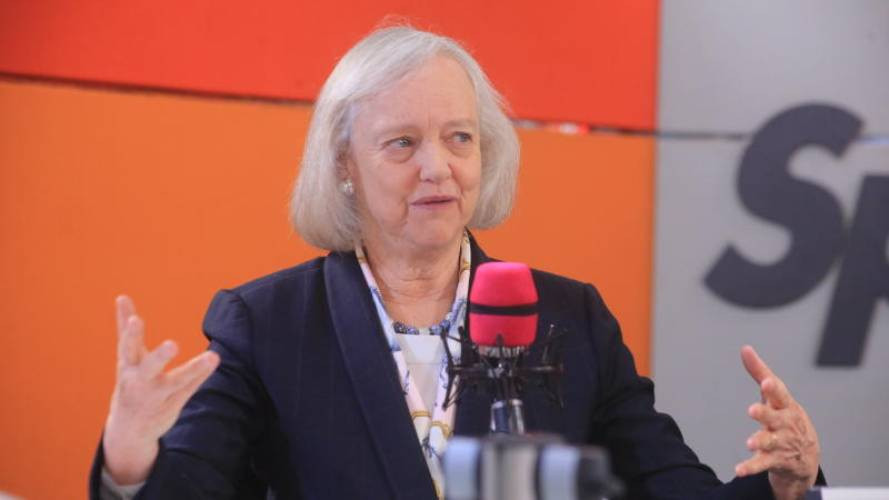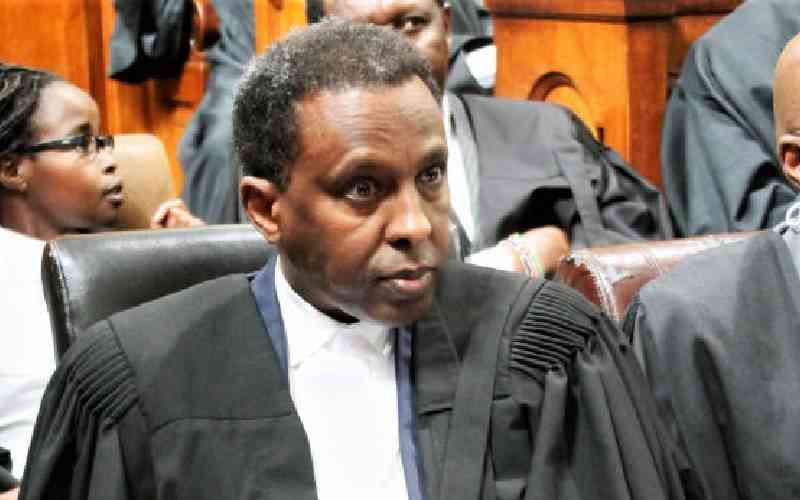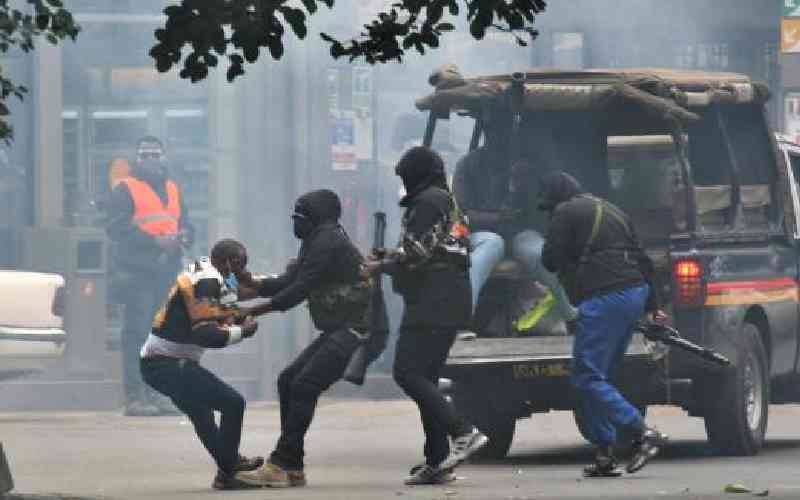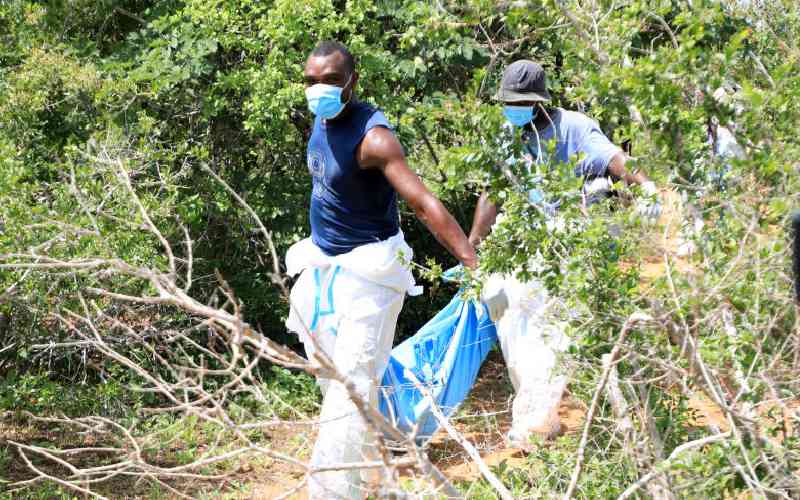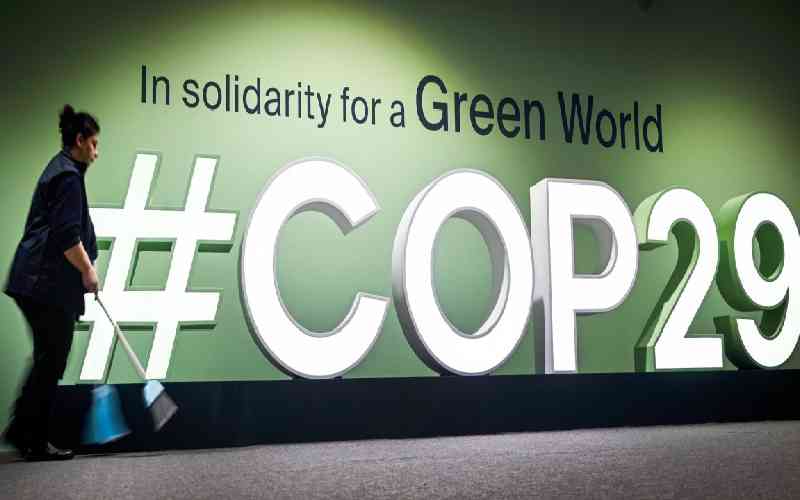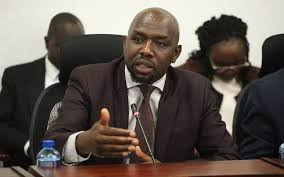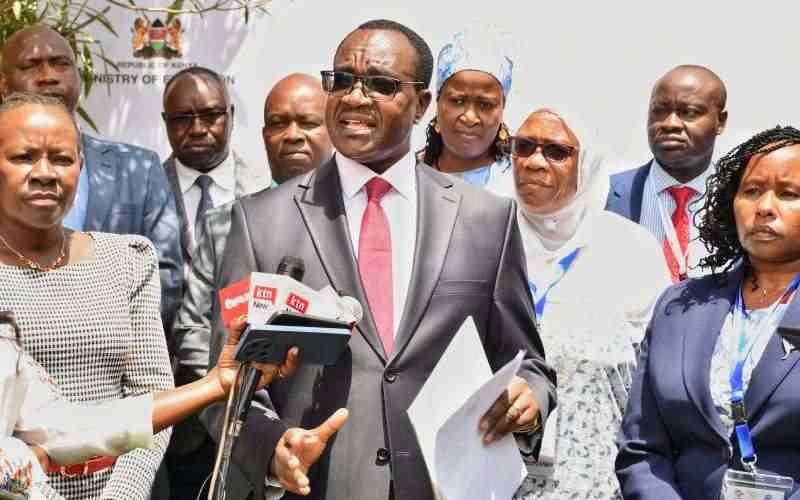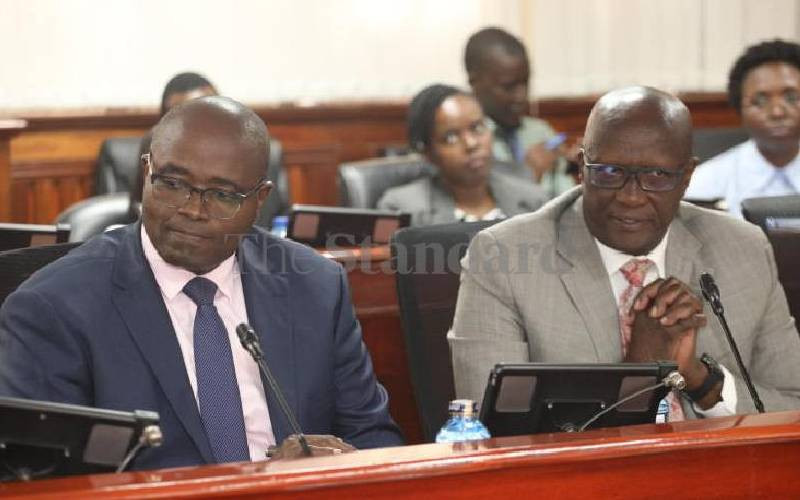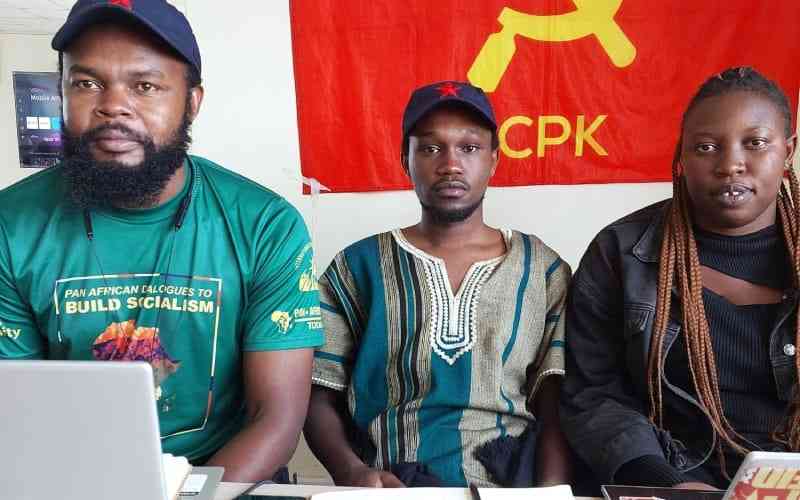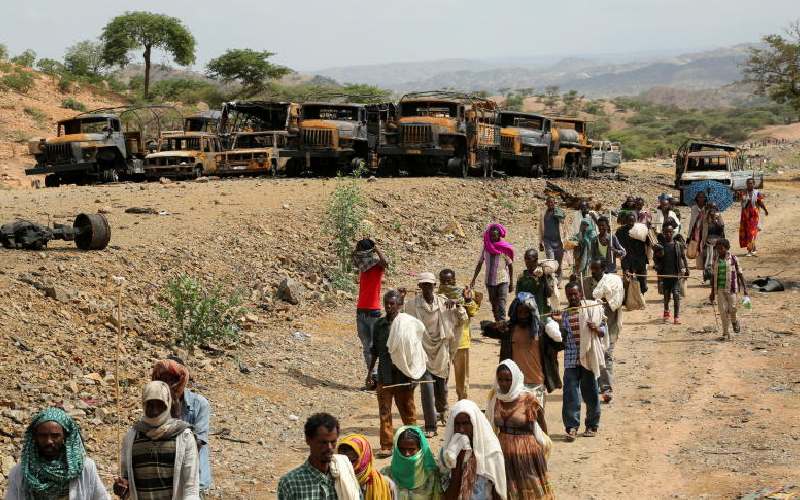
Villagers return from a market to Yechila town in south-central Tigray walking past scores of burned vehicles, in Tigray, Ethiopia, July 10, 2021. [Reuters]
The war between Ethiopia’s government and the Tigray Peoples’ Liberation Front entered its second year on November 4 and there’s little hope that it could end anytime soon, as the warring parties are digging in their heels despite international calls for dialogue to de-escalate the conflict that has already killed thousands and left millions in dire need of humanitarian assistance.
The next few weeks will be crucial, as each side is trying to chalk up a decisive victory to shift the tide of the war in its favour, said Christopher Rhodes, a lecturer at Harvard University, who warned that, “the current situation seems poised for a stalemate or war of attrition.”
This week, the government has -- at least for now -- clawed back the momentum from the TPLF, beating off the rebel group’s whirlwind offensive that threatened the capital and, over the weekend, prompted the US to put Ethiopia at Level 4, the highest travel advisory level, and ask its citizens to leave the country immediately “using commercially available options”.
Prime Minister Abiy Ahmed, adamant as ever about ruling Ethiopia, scoffed at foreign nations’ alarmism and urged his citizens on November 8 to “continue moving forward in unity,” even if others attempted to hold them back. He promised to trounce rebel groups “set to destroy” Ethiopia, saying his country would “persevere through” its current challenges. His administration last week imposed a six-month state of emergency and asked Ethiopians living in the capital to defend their city and “bury” rebel groups, a statement Facebook removed for “inciting and supporting violence.”
Rape of women and girls
Last year, when the premier sent troops to the Tigray region after TPLF forces attacked a federal army base there, he portrayed his move as a “law enforcement operation” with “clear, limited and achievable objectives”. A year later, however, Ethiopia finds itself on the cusp of what Abiy himself said could be a “fate” similar to the one that has befallen Libya and Syria. In fact, Ethiopians — a mosaic of more than 80 ethnicities — are now firing at each other, crossing swords and machetes, raping woman and girls and destroying property.
The warring parties have committed “possible violations of international human rights and international humanitarian law,” such as deliberate targeting of civilians, indiscriminate attacks and widespread destruction of property, said a joint report by the UN High Commissioner for Human Rights and the Ethiopian Human Rights Commission on November 1, citing numerous credible reports. The acts of sexual and gender-based violence committed by all parties to the conflict included gang rape, oral and anal rape, insertion of foreign objects into the vagina and intentional transmission of HIV, said the report.
The joint investigation “has reasonable grounds to believe that a number of these violations may amount to crimes against humanity and war crimes,” said the two organisations.
Alice Wairimu Nderitu, Special Adviser of the UN Secretary-General on the Prevention of Genocide, voiced concern over the escalation of violence, increased incidence of ethnically and religiously motivated hate speech in Ethiopia.
A battle for supremacy
“It is essential that all parties take serious and urgent steps to de-escalate the situation and take active measures to mitigate the risk of commission of wide-spread and systematic violence, including along ethnic lines,” Nderitu said in a statement. “This risk is real and must be addressed as a matter of urgency.”
How did a once-stable country, whose economy for two decades recorded double-digit growth and used to send peacekeepers to other countries, get to this point?
Analysts say it is not hard to nail down the cause.
“This is clearly a battle for supremacy between the current and former ruling powers of Ethiopia,” Rhodes told the Sunday Standard. “Abiy may be sincere in his vision of implementing something closer to majority rule, but he’s also doing so in a way that consolidates power around himself. And the TPLF leaders probably aren’t that interested in majority control but are willing to find common cause with other groups seeking power, independence or autonomy.”
Stig Jarle Hansen, a professor at the Norwegian University of Life Sciences, said given the lack of trust between the warring parties in Ethiopia, a decentralised structure could be the only option for Ethiopia in the future.
“It is perhaps an irony to which Prime Minister Abiy has indirectly contributed,” Hansen said. An Ethiopian exodus would destabilise the region, he said, urging Kenya to explore a mediation role in Ethiopia, which in the earlier phase of the conflict rebuffed such an offer from Nairobi.
“Miscalculations on both sides, as well as the ethnification of the conflict, where now ethnic militias are doing most of the fighting and the popularity of various parties in their home areas, have helped the war to drag on,” Hansan said.
So far the international efforts to resolve the conflict have failed to end the war. Many countries’ skittishness to apportion the blame and call out the guilty party has also further compounded the situation. Duelling narratives about TPLF’s past rule and Abiy’s current administration, disagreements on how to govern Ethiopia after the TPLF’s ouster, the West’s bias toward TPLF as well as each side’s desire to defeat the other to dictate its terms made the path to peace even thornier. The international community’s desultory and uncoordinated mediation efforts, media’s alarmism, rampant disinformation and the TPLF leaders’ hubris, such as their threat to march on Addis Ababa, muddied the waters.
When Secretary of State Antony J Blinken appointed Jeffrey Feltman on April 23 last year as the US Special Envoy for the Horn of Africa, inhabitants of the region heaved a sigh of relief, hoping that the raging war in Ethiopia, its border tension with Sudan and the dispute, mainly with Egypt, over the filling and operation of the Grand Ethiopian Renaissance Dam on the River Nile would soon be resolved.
But after several months in which Feltman toured the main hotspots of the region – Ethiopia and Sudan – his diplomacy has suffered a humiliating defeat in recent weeks. Everything he tried to de-escalate has metastasized into a major regional crisis: The war in Ethiopia has dramatically escalated, as the push by the TPLF rebel group toward the capital has put the survival of the Ethiopian state at risk. The border dispute between Ethiopia and Sudan as well as the tension over the dam remained as they were. Last July, Ethiopia started to fill the reservoir of the dam, angering Egypt. On October 25, the Sudanese military staged a shock coup and dismantled the civilian administration led by Prime Minister Abdalla Hamdok, plunging the already ailing country into a political crisis.
While the failure of the American envoy may take the cake, yet the unproductive efforts of the European Union, the African Union and others were also a major disappointment for many who thought that the international community could bring pressure to bear on warring parties in Ethiopia.
President Uhuru Kenyatta and his Ugandan counterpart Yoweri Museveni have joined the chorus of international leaders and organisations calling for dialogue. President Museveni invited East African leaders to a November 16 meeting in Kampala to discuss the war in Ethiopia.
The “fighting must stop!” Uhuru said in a statement on November 3, disclosing that he had conferred with African leaders, the United States, the UK, the European Union and France on his bid to “try to bring an end to this crisis.” President Uhuru, while in New York last October to chair a UN Security Council session on diversity, state-building and peace, urged warring parties to “cease hostilities and be able to engage and find a political solution”. Feltman and President Uhuru discussed the Ethiopian crisis on November 7 during the envoy’s visit to Kenya.
It’s unclear whether the Ethiopian government will take these two regional leaders’ push for a negotiated settlement seriously. Addis Ababa’s ties with Nairobi have grown frosty since Abiy came to power. Abiy will most likely be unhappy with any initiative from Kampla after Lt Gen Muhoozi Kainerugaba, a son of President Museveni, expressed his support for the TPLF, saying on a message on Twitter that, “I am as angry as you and I support your cause. Those who raped our Tigrayan sisters and killed our brothers must be punished!”
Hansen, the Norwegian professor, said Feltman’s half-heartedness, his lack of sense of urgency, Addis Ababa’s distrust of the West and his unfamiliarity with a polarized region have militated against his mission’s search for a quick fix for entrenched problems in both Sudan and Ethiopia. For Feltman, a visiting fellow in international diplomacy at the Brookings Institution, the mediation effort that after all came five months later was just a part-time gig to earn an extra dough. His glowing praise of TPLF’s late supremo Meles Zenawi in 2012 didn’t help his mission either.
Meles was an “impressive statesman who dedicated many decades to serving his country, a skilled mediator,” Feltman said at the funeral of Meles, whose rule the Abiy administration called a “dark” era. On November 1, Feltman, a former United Nations Under-Secretary-General for Political Affairs, described his words about Meles “banal”.
“My remarks that day bypassed entirely the subject of human rights in emphasising the Meles’ economic legacy,” he said, recalling how during his visit people pointed fingers to “ears then ceilings as a reminder that walls in Addis have ears”.
Candid as he’s about his past missteps, there’s only so much that Feltman, who calls the conflict in Ethiopia a “needless war”, can do, especially when the antagonists are intransigent and the wider region is informally divided into two axes, with Ethiopia, Eritrea and Somalia on one side and Kenya, Djibouti, Uganda and Sudan along with Egypt on the other side.
The two camps’ rivalry is nowadays centred on a contest over which side could decide the Ethiopian war, as the final victor there could help tilt the regional balance of power to its favor.
The Kenyan-led axis would have wished the Tigrayan rebel group to achieve a favourable outcome either by ousting Prime Minister Abiy -- who has since taking power in 2018 distanced himself from Nairobi, an old ally — or, at the minimum, weakening him politically and militarily to eventually force him into quitting his alliance with the Eritrean leader Isaias Afwerki, the ideologue behind the tripartite alliance that for the first time ever brought Addis Ababa, Asmara and Mogadishu together.
Feltman’s mission -- to “lead an international diplomatic effort to address the interlinked political, security, and humanitarian crises in the Horn of Africa” -- was doomed from the start as Addis Ababa’s trust in many African and Western capitals was eroded by their sympathetic views towards the TPLF.
In an open letter to President Biden on September 17, Prime Minister Abiy pilloried Western nations, including the US, for doing “little to no resistance” about the “pervasive human rights, civil and political rights violations under TPLF’s regime” over the 27-years it had been in power.
Abiy is particularly incensed at the Western media’s slanted coverage of the war that focused more on the Ethiopian government’s actions in the Tigrayan region and against Tigrayans and less on what his government considers a treasonous act by the TPLF, whose leaders confessed to starting the war to pre-empt a potential offensive by the federal forces.
The TPLF’s demands knocked the bottom out of the African Union’s approval of the Ethiopian government’s June 28 ceasefire and its call for “a political solution to the ongoing conflict is the only way out.” On November 9, five days after the war erupted in Tigray, chair of the Commission of the African Union Moussa Faki appealed for an “immediate cessation of hostilities,” irking the TPLF, which didn’t like the continental body’s “firm attachment to the constitutional order, territorial integrity, unity and national sovereignty of the Federal Democratic Republic of Ethiopia to ensure stability in the country and in the [Tigray] Region.”
Faki appointed Olusegun Obasanjo as his envoy for the Horn of Africa region on August 26 last year. The AU’s decision to tap Obasanjo came after the European Union appointed Annette Weber as the 27-member states’ special representative for the Horn of Africa on July 1 last year “to actively contribute to regional and international efforts to achieve lasting peace, security and development in the region.”
Obasanjo is now in Addis Ababa and has so far met with Prime Minister Abiy and last Sunday traveled to the Tigrayan capital, Mekelle, where he met with the TPLF’s leader, Debretsion Gebremichael. Getachew Reda, Debretsion’s advisor and TPLF spokesman, called the meeting a “very fruitful discussion.”
Doomed to fail
“It was a good meeting,” he said. although he later dismissed the international community’s “peace initiatives” as an attempt aimed mainly at “saving” Prime Minister Abiy and not addressing “the most critical political challenges” in Ethiopia. “Efforts that fail to address our conditions & the tendency to conflate humanitarian issues with political ones are doomed to fail!,” Getachew said.
On Monday, Obasanjo told the UN Security Council that the “window of opportunity we have is very little and that time is short.” The AU held a closed-door meeting on the same day to discuss the Ethiopian war.
This flurry of efforts is unlikely to result in an immediate ceasefire, a delay that is bound to further worsen Ethiopians’ suffering and put their country at a graver risk of disintegration. In a speech at the US Institute of Peace on Tuesday, Fletman, the US envoy for the Horn of Africa, warned that “If not addressed through dialogue and consensus, these problems can contribute to the deterioration of the integrity of the state.”
 The Standard Group Plc is a multi-media organization with investments in media platforms spanning newspaper print
operations, television, radio broadcasting, digital and online services. The Standard Group is recognized as a
leading multi-media house in Kenya with a key influence in matters of national and international interest.
The Standard Group Plc is a multi-media organization with investments in media platforms spanning newspaper print
operations, television, radio broadcasting, digital and online services. The Standard Group is recognized as a
leading multi-media house in Kenya with a key influence in matters of national and international interest.

